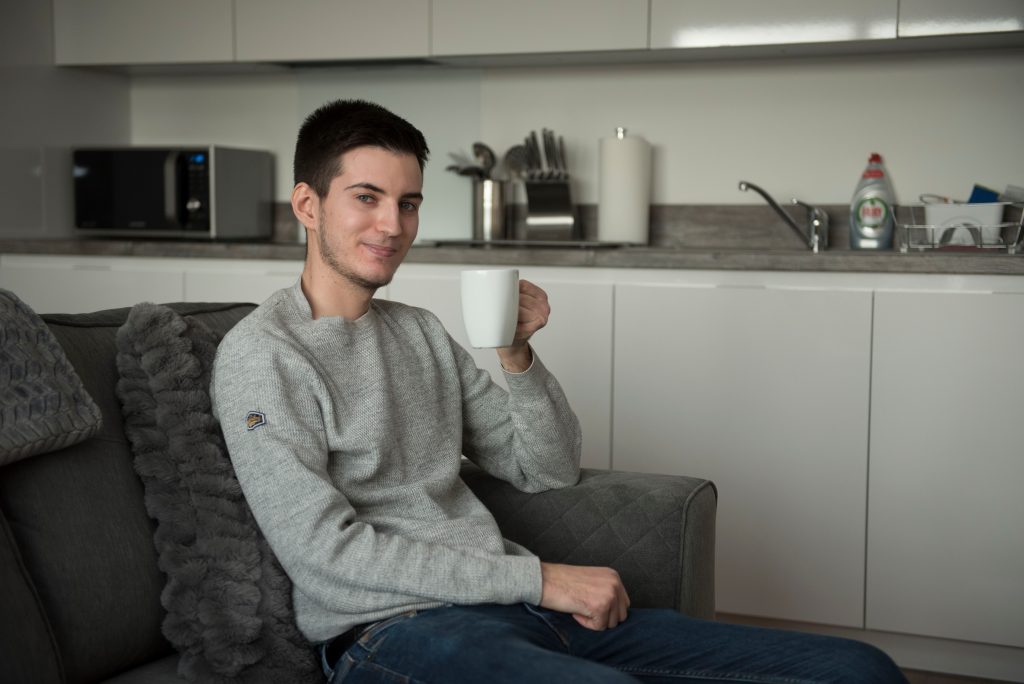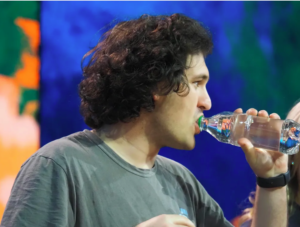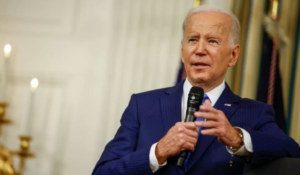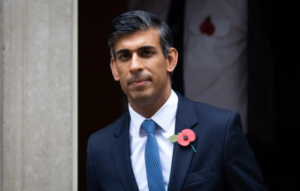Ross Lawrie – How I ‘tweaked’ my salary to get a £183k mortgage home

Ross Lawrie scaled
Ross Lawrie, 26, bought his one-bed flat in Luton in July but almost missed out on getting a mortgage altogether because of the complicated way airline staff are paid.

His salary is made up of three different incomes – a basic salary, commission on what you sell on board and “sector pay”.
The amount you get a “sector pay” varies based on how long the journey is.
But lenders weren’t convinced by his fluctuating income and so he realised he needed to increase his income.
Ross stopped paying £500 a month to his employer’s share save scheme.
He has been using the scheme as a tax break and way to save cash, as the money was taken off his salary before it his bank account, making it look like he earned less than he did.

This was enough to convince them that he could afford to borrow money and the lenders offered him a £83,400 mortgage, but buying solo meant he was still short of cash.
He’d already saved £10,000 for a five per cent deposit and took out a Help to Buy loan worth £36,600 to lower the initial costs.
Ross was fortunate enough to be gifted £53,000 from his parents to plug the gap – an amount he plans to pay back when he comes to sell the property.
Now, the first-time buyer is continuing to save £400 a month to go towards his goal of paying of the loan before the five year interest-free period is up.
After almost five years of renting a room in a seven-person shared house, Ross finally lives on his own – although he finds the responsibility of homeownership a daunting task.
We caught up with him for our latest My First Home installment.
What’s your place like?
I live in a one-bed flat in Luton. There’s an open-plan kitchen and living room and a Juliette balcony for when the weather is good enough.
There’s also a separate bathroom and utility room – I think it’s quite big compared to what I paid for it.
I live on my own, which is really nice considering that I lived in a house share with six other people for four and a half years before.
How did you decide on location?
I’m based at Luton airport so I knew I wanted to live somewhere that was easily commutable – I didn’t like the idea of finishing a late shift and having to travel a long way to get home.
I knew that I’d need to use the Help to Buy scheme too so I was on the lookout for new developments in the area but at the time, there weren’t that many.
I ended up choosing this Redrow block of flats because it’s a short walk from the train station and there’s a shuttle bus that takes me straight into the airport.


There are plans to build a dart train that goes from here to the airport that will be free for airport workers which will be super helpful. There are loads of airport workers living here too.
I know Luton might not be the most appealing of places but I’m forever telling my friends about how I think it’s up and coming.
St Albans or Milton Keynes might seem like a more appealing place to live but Luton is only a 25minute train journey from London and you get more for your money here.
How did you pay for it?
The house was originally on the market for £195,000 but by the time I went to see the showroom in May this year, they’d knocked the price down to £187,000.
It was just after Brexit had been pushed back to Halloween.
At the time there were loads of reports that the housing market had slowed down, and that first-time buyers were holding off until after we’d left the EU to buy a property to get a good deal.
But the developers were keen to make a sale so they also threw in a handful of freebies like a built-in wardrobe and a parking space which would have cost me another few thousand pounds at least.


They also gave me £1,000 to cover the legal fees. Of course, I didn’t need to pay for stamp duty because of the relief [for first-time buyers].
The mortgage surveyor then came around and valued the property at £183,000, which the developers agreed to because I think they were just so keen to sell in the current climate.
I’d saved £10,000 which was enough for more than a 5 per cent deposit, and took out a Help to Buy loan for 20 per cent of the property, worth £36,600.
My salary, alone, which was around £20,000, wasn’t enough to allow me to get a mortgage for the remaining £146,300.
I was in a really lucky position in that my parents could give me £53,000 to boost the deposit – otherwise I would have been saving for another five years or so, or had to get a better paid job, before buying somewhere.


Although it was a gift, I am planning on paying them back when I sell the flat.
So I got a, £83,400 mortgage which works out at £246 a month. It’s more than half the £595 I used to pay in rent and bills for the room in the house share.
It’s a fixed-rate deal but I’m hoping to reduce it to 25 years when I come to remortgage.
How did you save £10,000 and how long did it take you?
I wasn’t really that smart with my savings to be honest. I didn’t know that I was planning on buying my own home so I was only into shares schemes through work.
What help is out there for first-time buyers?
GETTING on the property ladder can feel like a daunting task but there are schemes out there to help first-time buyers have their own home.
Help to Buy Isa – It’s a tax-free savings account where for every £200 you save, the Government will add an extra £50. But there’s a maximum limit of £3,000 which is paid to your solicitor when you move.
Help to Buy equity loan – The Government will lend you up to 20 per cent of the home’s value – or 40 per cent in London – after you’ve put down a five per cent deposit. The loan is on top of a normal mortgage but it can only be used to buy a new build property.
Lifetime Isa – This is another Government scheme that gives anyone aged 18 to 39 the chance to save tax-free and get a bonus of up to £32,000 towards their first home. You can save up to £4,000 a year and the Government will add 25 per cent on top.
Shared ownership – Co-owning with a housing association means you can buy a part of the property and pay rent on the remaining amount. You can buy anything from 25 to 75 per cent of the property but you’re restricted to specific ones.
“First dibs” in London – London Mayor Sadiq Khan is working on a scheme that will restrict sales of all new-build homes in the capital up to £350,000 to UK buyers for three months before any overseas marketing can take place.
Starter Home Initiative – A Government scheme that will see 200,000 new-build homes in England sold to first-time buyers with a 20 per cent discount by 2020. To receive updates on the progress of these homes you can register your interest on the Starter Homes website.
One was a share-save scheme which would have let me buy shares in the company at a discounted rate after three years. I paid £350 a month into it.
The other one was a buy and save scheme that gave me a free share for every share I bought outright. I paid £150 into this share scheme.
Unfortunately, this property came up before the share-save scheme had matured so although I didn’t lose any of the money I invested, I didn’t gain anything either.
The same thing happened with the buy and save scheme. I cashed in the ones that I’d bought but didn’t earn much on them.
I can’t cash in the ones I was given for free for another year yet, so I lost out there too when it came to saving for a house.
If I could do it again I’d have opened a Help to Buy Isa so that I would have seen some return on my savings.

These were the only savings I had so I had enough money to last me until the end of the month and I didn’t really feel like I was going without anything as my outgoing weren’t that much either.
Did you find it difficult to get a mortgage?
Yes, I did actually, mainly because of the way you’re paid as a member of airline staff.
My salary is made up of three different incomes – a basic salary, commission on what you sell on board and what’s called “sector pay”.
This is what you get for every flight you work on – you get more cash the longer the flight.
The amount can vary from month to month depending on flights you’ve been rotaed in for, something that made the mortgage providers a bit more wary about lending to me.

The basic salary is really low and nowhere near enough to get a mortgage so they took an average of all of the components of my income, which meant I was offered less.
I stopped paying into the share schemes so that my monthly salary was more too, which helped them make a decision.
But if I didn’t have the help of my parents, I’d have had to save a much bigger deposit.
How are you planning on paying back the Help to Buy loan?
My plan is to keep on saving every month so that I can pay it back by the time the five-year interest-free period is up.
I recently got a promotion at work so I’m putting the £400 a month boost from my salary into savings.


I don’t want to wait until I sell the flat to pay it back because then I might not be left with enough to buy a new place.
Besides, that’s when I hope to repay my parents, with the money I make on the property.
How about paying to furnish it?
Because I lived in a houseshare before moving here, I’ve got no furniture of my own so I had to start from scratch.
Buying a house isn’t like buying a car where you have one big upfront cost and then you can use it – you have to spend so much more money furnishing it.
Luckily, I didn’t spend all of the money my parents lent to me so I used that to buy a bed and sofa and things.
I bought it all brand new because my only other option was to get it all on finance and I hate the idea of owing money for such a long amount of time.
How did you feel finally moving in?
I moved in within a month an a half of first looking at the flat, which was quite a short amount of time.
Read Also – Andrew should interview under OATH: Lawyer for sex slave Virginia Roberts
I was obviously thrilled to finally move into my own place but I also immediately started worrying about 100 other things that come with owning a home.
It hit me straight away that I’m solely responsible for paying for the heating, electricity and all the other bills, and I was suddenly aware that I needed to set everything up like broadband.
Source – https://www.thesun.co.uk/money/





